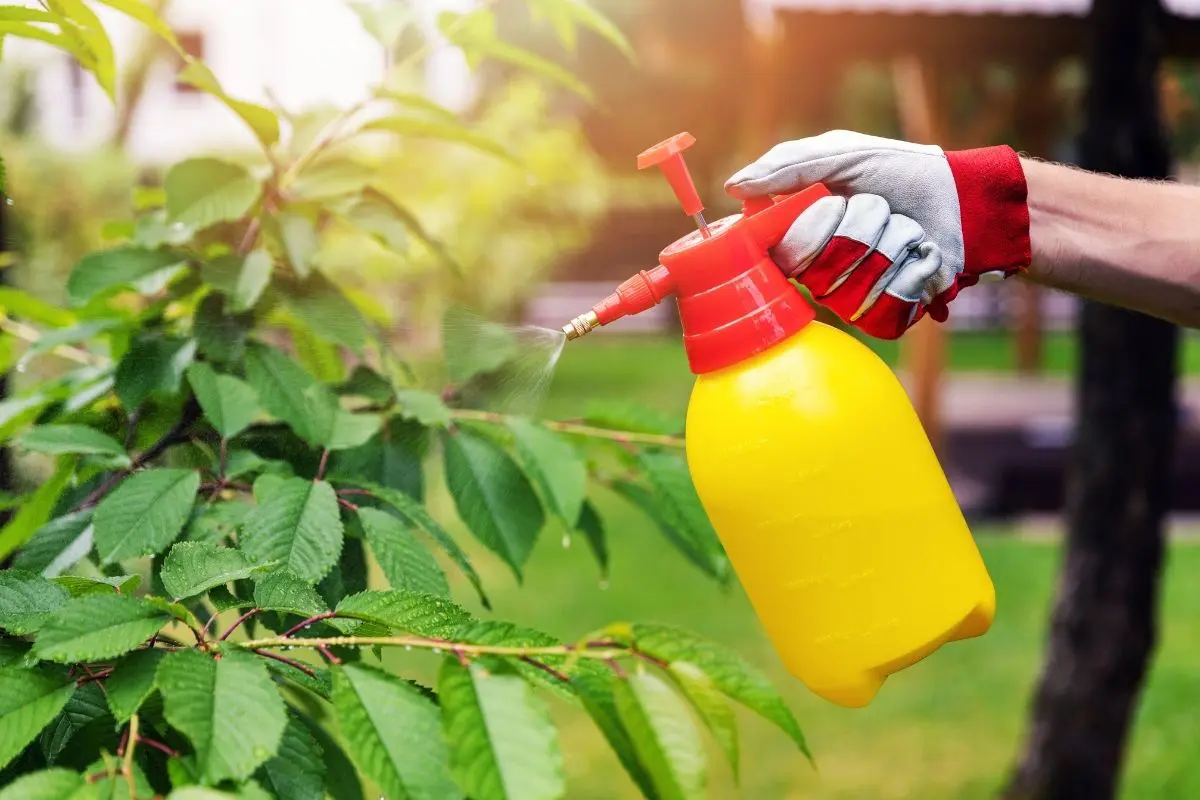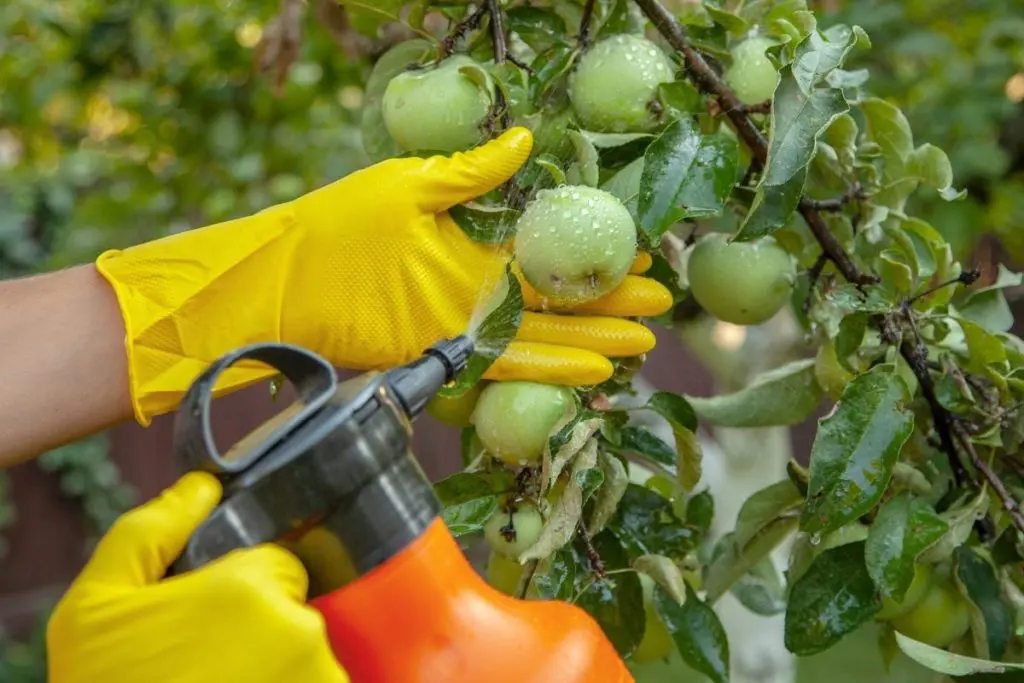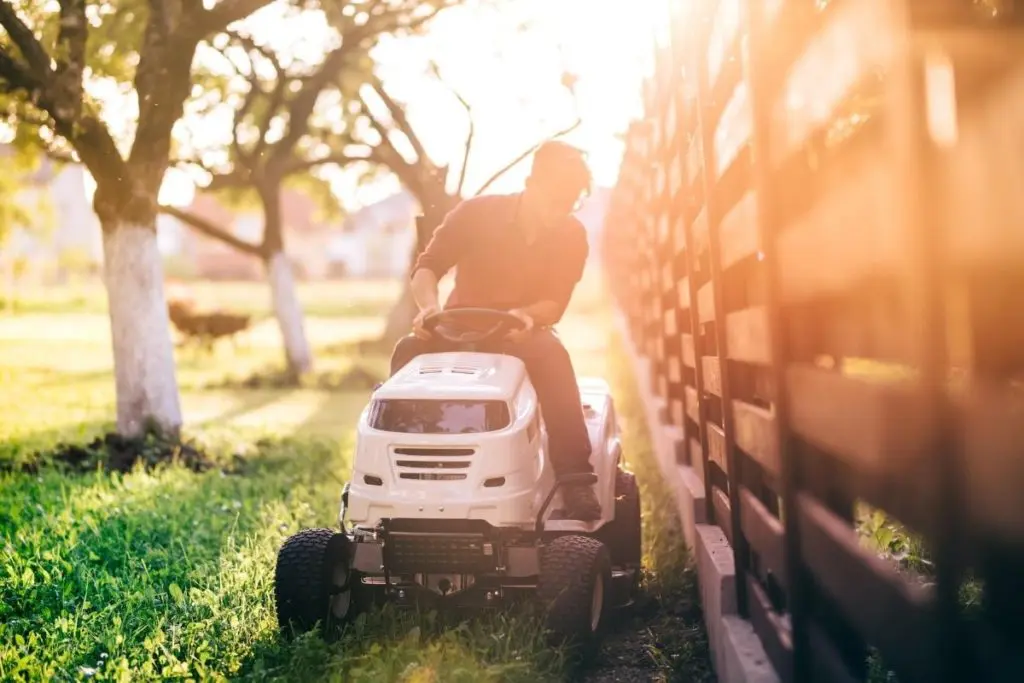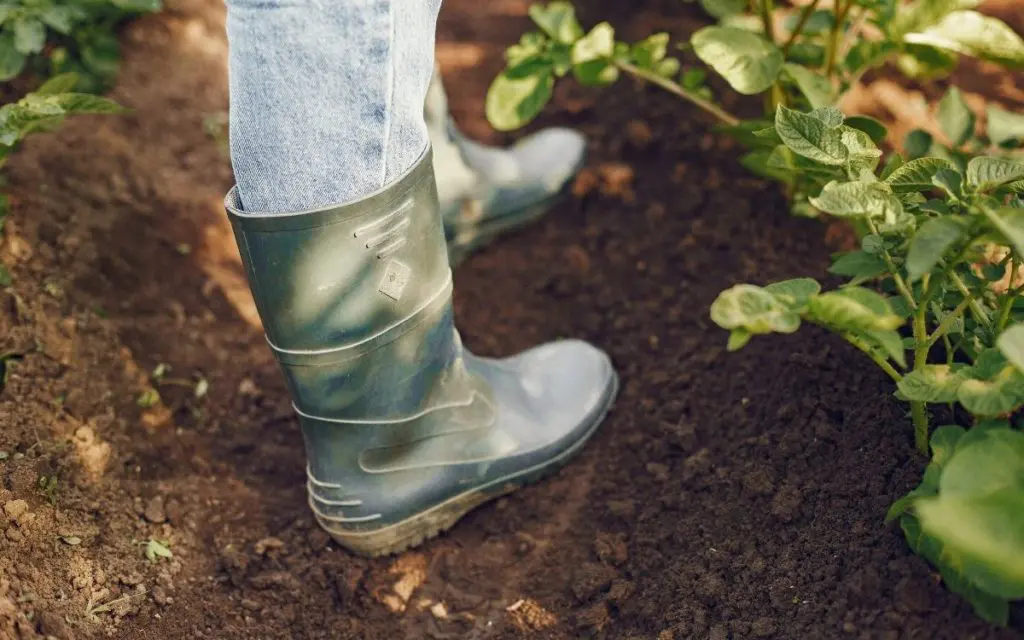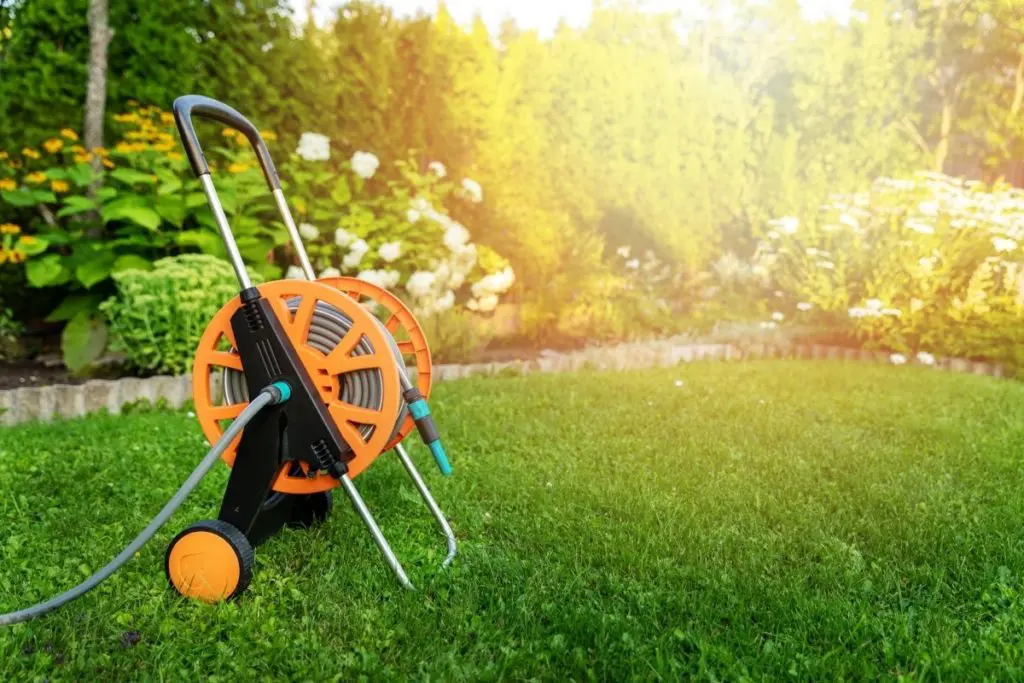Got bugs? We’re not talking about the good kind of insects, like fuzzy honeybees, cheerful ladybugs, or fat earthworms. No, we’re talking the gardener’s perennial foes, like aphids, thrips, wasps, or fruit flies. You need the best organic insecticides for vegetable gardens.
The real key to a healthy vegetable garden is “building up” your soil with nutrients and a diversity of microbes, so that harmful insects stay away in the first place. But even the best gardener must occasionally deal with an infestation of bad bugs.
Don’t fret; we’re here to help! First we’ll round up some of the best organic insecticides for your vegetable gardens and natural gardens — and then we’ll show you how to make your own!
Our Top Picks
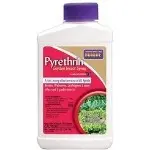 | Best Overall: Bonide Garden Insect Spray (Pyrethrin) The Bonide Garden Insect Spray with Pyrethrin scores our best overall spot, due to its strength and effectiveness. |
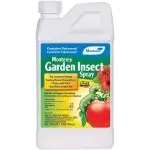 | Best for Ants & Beetles: Monterey Garden Insect Spray (Spinosad) Sometimes you need a more targeted insecticide, like this Monterey Garden Insect spray, which uses Spinosad for effective, non-toxic pest control. |
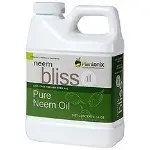 | Best for Organic Gardening: Organic Neem Bliss 100% Neem Oil Trusty Neem oil is one of the most widely-used and one of the best-rated insecticides for organic vegetable gardens. |
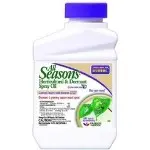 | Best Value: Bonide All Seasons Horticultural and Dormant Spray Oil This Bonide Horticultural Spray is not only safe and effective, it practically lasts forever. |
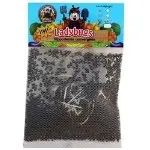 | Best Other: Good Bugs 1500 Live Lady Bugs Let nature run its course with these very Good Bugs. |
A Closer Look: Best Organic Insecticides for Vegetable Gardens
Figure out why these 5 insecticides made the list as get a closer look below.
1. Bonide Garden Insect Spray (Pyrethrin)
The best natural insecticide overall
Pyrethrin, a substance extracted from chrysanthemums, is one of the most effective organic insecticides you can buy. It kills a wide range of insects on contact, including: wasps, beetles, aphids, fleas, flies, caterpillars, roaches, silverfish, mosquitos, spiders, scales, and more.
The Bonide Garden Insect Spray has a low toxicity level and is generally safe for humans or pets, and quickly disperses after use.
There is one main drawback to Pyrethrin, however. To increase its potency, it’s often paired with a very small amount of Piperonyl Butoxide (PBO), a decidedly non-organic and toxic additive. Since it’s such a low percentage, some gardeners are OK with the trade-off. However, if you want an insecticide that is truly 100% natural and non toxic, we recommend Neem oil (see #3) or one of the best organic homemade insecticides for vegetable gardens that we’ll outline after the round up.
Reviewers Like
- Strong and effective
- A little goes a long way
- “Kills aphids dead as Julius Caesar”
Reviewers Dislike
- Smells bad
- Contains a petroleum distillate to aid in potency
2. Monterey Garden Insect Spray (Spinosad)
The best natural insecticide for vegetable gardens
This Monterey Garden Insect Spray can be used to control moths, caterpillars, thrips, mosquitoes, leafminers, borers, fruit flies, spider mites, beetles, ants, and more. In fact, it’s one of the best insecticides for ants in the vegetable garden. (Note that it is not as effective against aphids.)
Its active ingredient is Spinosad, which is similar to Bt, another common natural insecticide. Both use soil bacterium to kill insects but are totally harmless to people and pets.
One important thing to know when using this product: Spinosad is toxic to bees when wet, so make sure to be very careful when applying. A general recommendation is to spray in the evening (which allows the spray to dry overnight) and avoid using this type of insecticide near plants that produce flowers, pollen, or nectar.
This garden insecticide is one of two on our list classified as an organic substance by the USDA National Organic Program. It is listed by the Organic Materials Review Institute (OMRI).
Reviewers Like
- Odorless
- “Works as advertised”
- Especially effective against thrips, beetles, ants, and caterpillars
Reviewers Dislike
- Toxic to bees
- Doesn’t usually work on aphids
- Some experienced damage to plants
3. Neem Bliss 100% Pure Cold Pressed Neem Seed Oil
The best natural insecticide for organic vegetable gardening
Neem oil is the trusted and safe insecticide for vegetable gardens. Derived from the seeds of the neem tree, neem oil is truly organic, biodegradable, non-toxic and safe. In addition to its insecticidal properties, neem is an effective fungicide and miticide — and it’s one of the few commercial products that is a genuinely bee safe insecticide.
Neem oil kills adult insects, as well as eggs and larvae, and is safe to use up until you harvest your veggies or fruit. The Neem Bliss Neem Seed Oil that made our list is an 100% pure neem oil that is cold-pressed and sustainably sourced. Beware cheaper imitation “neem oil extracts” that lack sufficient amounts of azadirachtin, the main active ingredient in genuine neem oil.
Reviewers Like
- Highly effective
- “Like some kind of miracle”
- Great for houseplants, gardens, and any other application
Reviewers Dislike
- A distinctive, powerful smell
- Misleading packaging – don’t get as much as expected
- Too thick, needs to be stored at 70 degrees or more to use properly
4. Bonide All Seasons Horticultural and Dormant Spray Oil
The best budget non-toxic natural insecticide
This horticultural oil is gentle, safe, and offers a lot of application flexibility, since you can use it at any stage of the growing season. Bonide All Seasons Horticultural Oil’s active ingredient is a “non-toxic paraffinic mineral oil” that kills insects and plant diseases via suffocation.
Not only does this garden insecticide protect against insects like mites, aphids, spiders, whitefly, moths, and mealybugs, it also fights common plant diseases such as botrytis, powdery mildew, rust, and more.
One of the most significant advantages of All Seasons Oil is its value. Since it’s so highly concentrated, a little goes a very long way. This means a single bottle will likely last you for years!
Reviewers Like
- Lasts forever
- Kills both pests and weeds
- Works even when insects are dormant
- Works exceptionally well on scale, spiders, and aphids
Reviewers Dislike
- Can burn plants if applied too heavily
- Some received products with broken seals
5. Good Bugs – Live Ladybugs
The best alternative natural insecticide
Could the best best organic insecticides for vegetable gardens actually be different bugs? It’s time to consider ladybugs! These hard working little soldiers come ready to eat away all of your garden troubles. According to the manufacturer: “ladybugs are general predators that eat many slow-moving and soft bodied insects, including; aphids, moth eggs, mites, scales, thrips, leafhoppers, mealybugs, chinch bugs, asparagus beetle larvae, whitefly and other soft and slow-moving insects.”
Each batch comes with approximately 1500 ladybugs, ready to eat pests, (both larval and adults) and fade away naturally back into their environment when their work is done.
Use care not to release ladybugs in combination with any of the other insecticides on this list (including neem) as they can inadvertently kill these beneficial bugs. Also, make sure to only purchase non-invasive North American Ladybugs (Hippodamia Convergens) from a reputable source like this one.
Reviewers Like
- Fast, easy and effective
- No spray or liquid mess
- Work great if you carefully follow instructions
- Love an all-natural, chemical and insecticide-free pest control option
Reviewers Dislike
- “Less than advertised and some were dead”
- Sometimes the ladybugs take off for greener pastures (or a neighbor’s aphids)
Different Types of Eco-Friendly Insecticides
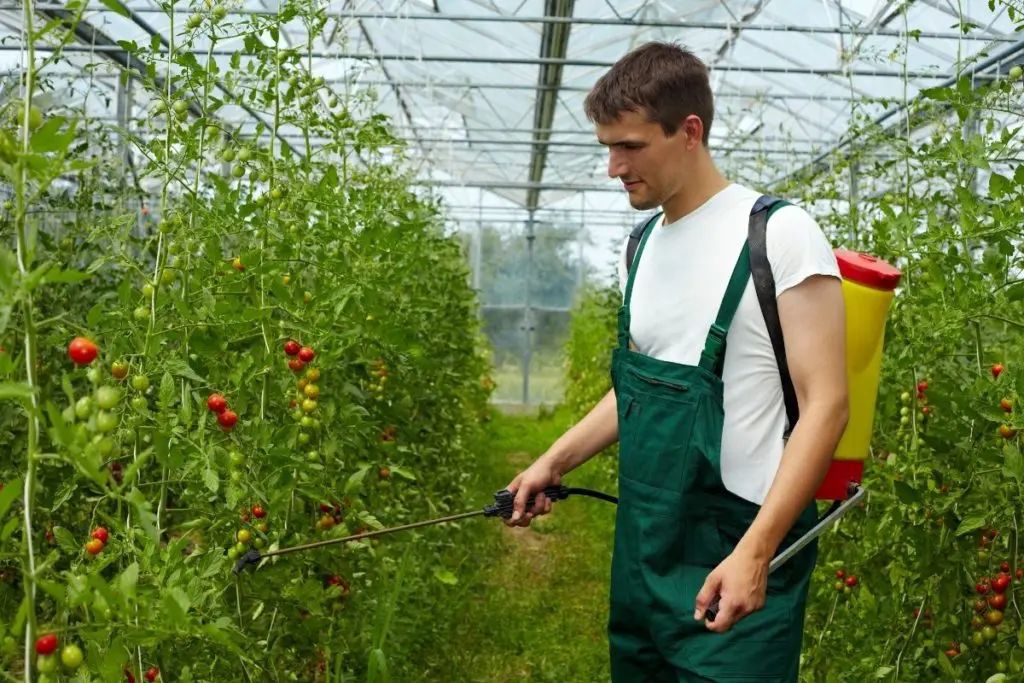
Insecticides come in dry, liquid, and granular forms. For the purpose of our roundup and DIY non-toxic insecticides, we’ve concentrated on liquids, as they’re the version most commonly found in the store. DIY liquid recipes are some of the simplest to make and apply at home.
Some garden insecticides come ready to use in their own spray bottles. More commonly, organic insecticides come in concentrated form, and need to be mixed with water, either via a garden hose, or by using a diluted solution in a garden sprayer.
You can also use other eco-friendly methods such as barrier plants to repel certain insects or use alternative “insecticides” like ladybugs to eliminate non-beneficial insects.
What is an ‘organic insecticide’?
When we refer to an organic insecticide, it’s to distinguish it from a chemical insecticide, rather than making any claims about the sustainability of its ingredients. Chemical insecticides have many well-known dangers, but organic insecticides can also be harmful if applied incorrectly (or ingested).
Since organic pesticides are derived from natural, or plant-based sources, they generally break down quicker and cause less harm to their environment. On the other hand, chemical pesticides take much longer to break down and are more likely to linger in the soil or eventually enter the water supply.
Primary Active Ingredients in Organic Insecticides
- Neem oil – uses Azadirachtin to repel and kill insects
- Pyrethrin – kills insects through paralysis
- Spinosad, Bt, and other bacterial insecticides – soil bacterium attack nervous system of insects
- Mineral or vegetable oils – kill insects by smothering
- Soap – kills insects via cell disruption
- Essential oils – repel insects
- Iron phosphate – toxic to slugs and snails
- Powders, like Diatomaceous Earth (DE) or borax – work by dehydrating exoskeletons of certain insects. Borax is one of the best insecticides for ants in vegetable gardens (or in your house!).
Make Your Own Organic Insecticides for Your Vegetable Garden
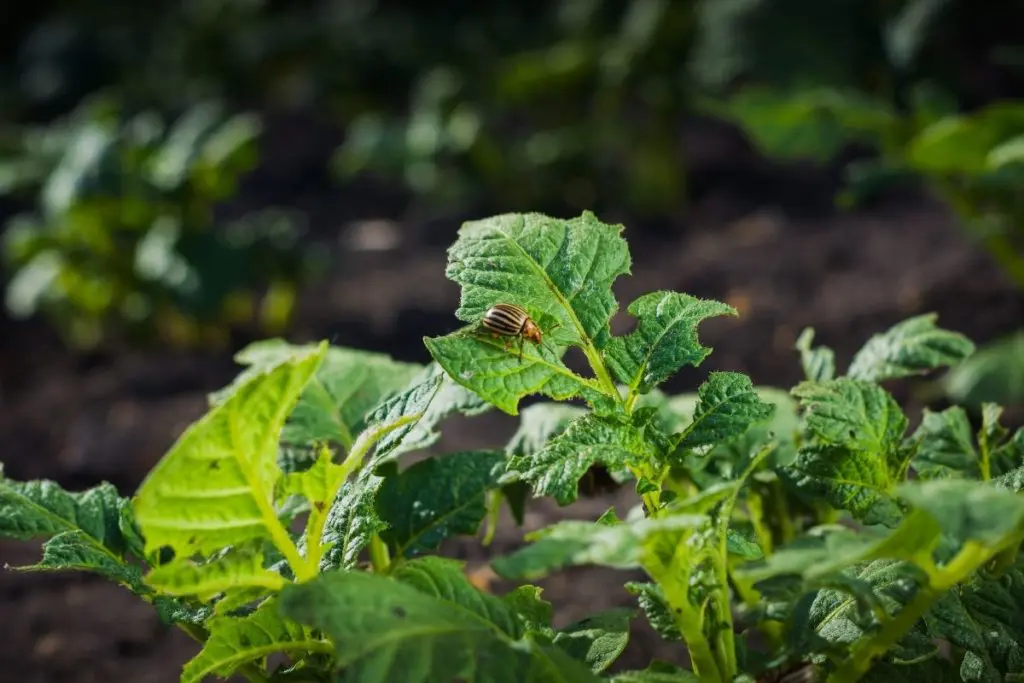
Here’s a secret: while all of the store-bought insecticides on our list are safe and effective, often the best organic insecticide for your vegetable garden is the one you make yourself.
It’s easy to make your own non-toxic, effective pest control solutions — often using common ingredients you already have around the house.
Advantages of DIY Insecticides:
- You can tailor your formulations to your particular pest problem. Beetles, aphids, or caterpillars (just to name a few) all respond a little differently to specific insecticides. Using a combination of common ingredients from around the house means you can narrow in on your problem without buying a bunch of expensive insecticides.
- Similarly, making your own organic insecticides can help you avoid “broad spectrum” killers. Using stronger insecticides than you really need is like using a firehose when you only need squirt — and it’s not great for your garden in the long run.
- Using a homemade insecticide is more forgiving if you don’t initially know exactly what you’re dealing with. You might have a plant disease or a fungal problem, rather than an insect one, but if you’re not using strong insecticides, you won’t damage your garden while trying to figure it out.
- Beneficial insects will thank you. Even though many commercial organic insecticides are safe for humans and pets, some are toxic to bees and other beneficial bugs.
The Best Organic Homemade Insecticides for Your Vegetable Garden – 3 Recipes to Get You Started
1
All Purpose Homemade Bug Spray for Vegetable Plants
The following is a great all-around insecticidal spray for your vegetable garden.
- 1 gallon of water
- 2 tablespoons cooking oil
- 5 tablespoons castile soap
- (optional) a few drops of essential oil, such as lavender or eucalyptus
Mix thoroughly and pour into a spray bottle or a garden sprayer[link]. Apply directly to visible insects and affected plants, taking care not to oversaturate. Monitor area to make sure there’s no leaf burn, browning, or withering. (Discontinue use if you find any.)
2
Wasp Spray Recipe
It’s hard to enjoy working in your garden if wasps have made themselves at home nearby. Use this surprisingly effective recipe to quickly get rid of a wasp’s nest.
- 1 gallon of water
- 4 tablespoons dishwashing detergent (degreasing, not castile)
- (optional) 1 teaspoon peppermint oil
Combine ingredients into a garden pump sprayer, and combine/shake thoroughly. (A handheld sprayer is not recommended for this use.) After you’ve donned protective clothing and determined the wasps are inactive, spray solution into and all around the nest, while maintaining a safe distance.
Two crucial things to remember if you’re using this spray:
- Only apply wasp killer while wearing protective clothing, when it’s dark, and when wasps are inactive
- Make sure that you’re killing wasps — not honeybees!
3
The “Kitchen Sink” D.I.Y. Insecticide for Vegetable Gardens
Other DIY recipes use ingredients you probably have in your kitchen right now. Try this multi-purpose brew that harnesses the power of plants and soap.
- a bulb of garlic
- a small onion
- 1 teaspoon cayenne pepper
- 1 tablespoon castile soap
Puree the garlic and onion together, adding cayenne at the end. Steep for 1-2 hours, strain, then add soap. Mix thoroughly and pour into a spray bottle. Use as needed, making sure to apply to tops and bottoms of leaves. Monitor plants for leaf browning or withering. (Discontinue use if you find any.) Store any unused solution in the refrigerator for up to one week.
So, at the end of the day, what is the best insecticide for a vegetable garden?
It depends on your pests, and your garden! Our recommendation is to start with a DIY organic insecticide, and if that doesn’t achieve your desired results, work your way up to using one of the stronger options on our top 5 roundup list.
Our Process
For this guide on the best organic insecticides for vegetable gardens, our team spent 6 hours researching the most popular options from over 20 brands and manufacturers big and small. We then read about one hundred user reviews (both positive and negative) to discover what shoppers thought about each natural insecticide. After comparing this data, we narrowed our list down to the top 5 on the market. You can count on this research to guide you to a mindful purchasing decision.
If you enjoyed this read, sign up for our newsletter below and get special online shopping deals delivered straight to your inbox.
Further Reading
